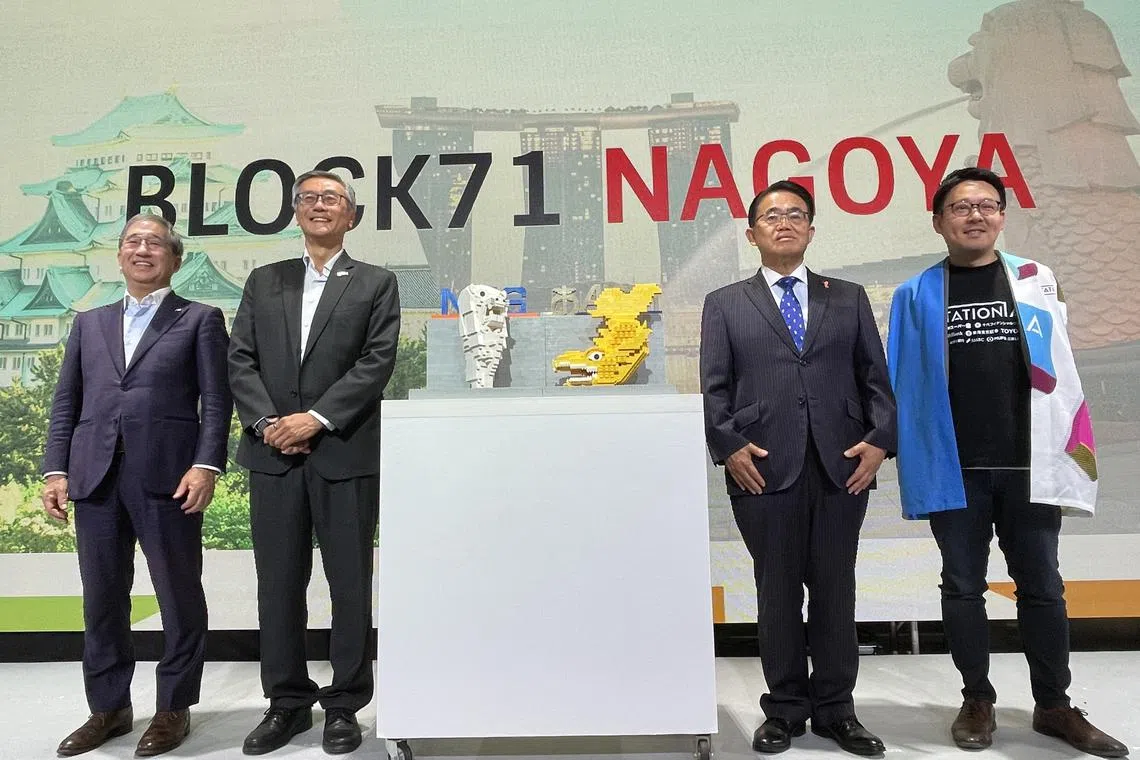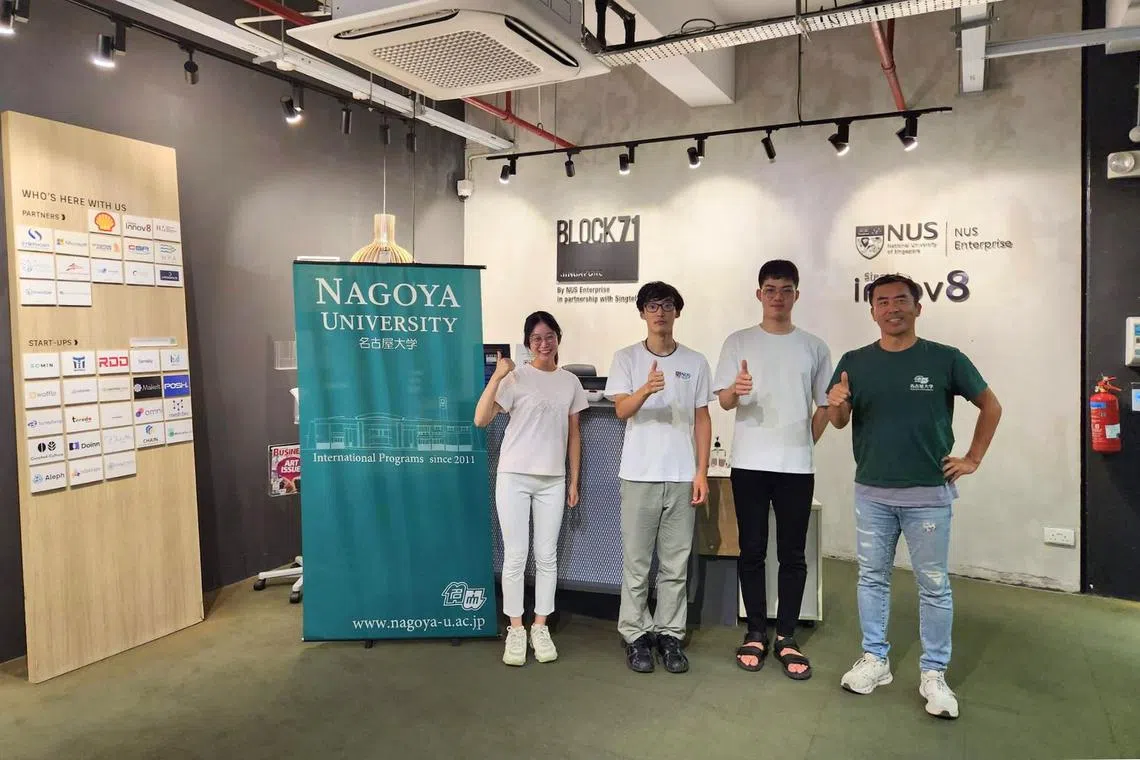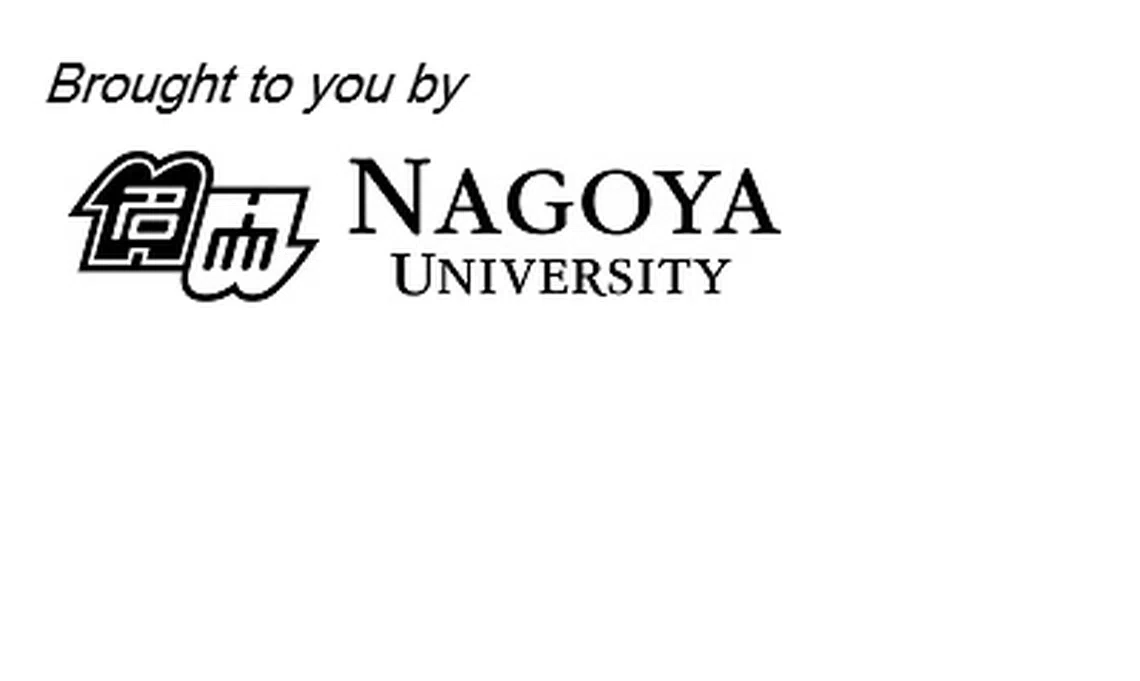BRANDED CONTENT
Talent exchange, start-up opportunities: How new campus creates two-way launch pad for Singapore-Japan tech ventures
The Nagoya University-NUS partnership aims to help South-east Asian start-ups navigate Japan’s complex business landscape while supporting Japanese firms’ expansion plans across the region

Under a partnership between Nagoya University and NUS, students and researchers collaborate on innovative projects like cargo drones that can deliver emergency supplies to remote areas.
PHOTO: GETTY IMAGES
In Nagoya, one Japanese start-up is working on a new generation of drones that will help save more lives when disasters strike.
A representative of Nagoya-based Prodrone says the “flying light trucks” on trial in rural and mountainous areas of Japan are cargo drones that can travel as far as 50km while carrying a load weighing up to 50kg. These are essential for transporting relief and medical supplies in bulk – and quickly – to isolated and disaster-stricken areas.
“Instead of sending humans to remote or hazardous locations in times of emergencies, our drones can deliver life-saving supplies to those in need quickly and safely,” says Mr Shunsuke Toya, chief executive officer of Prodrone.
It can also be used to deliver essential goods and services to families or the elderly living on their own in remote areas.
Supporting this vision is a collaborative effort that extends beyond Japan’s borders and Prodrone aims to expand to Singapore, bringing along its latest technologies, cutting-edge research, and ideas in drone technology.
In August 2024, a PhD student from the National University of Singapore (NUS) arrived in Nagoya for an internship at Prodrone, as part of a partnership between NUS and Nagoya University
Says a spokeswoman for the industrial drone manufacturer: “Singapore is a hub of innovation, particularly in AI technology, making it the perfect location for our expansion into South-east Asia. By partnering with NOC, we hope to tap into Singapore’s vibrant start-up ecosystem and advanced AI expertise.”
She adds that Singapore’s strategic location enables the company to use it as a base to expand its operations into neighbouring markets, such as Malaysia, Indonesia and Thailand.
In October 2024, BLOCK71 Nagoya was set up by NUS in collaboration with the Aichi government at Station AI, Japan’s biggest innovation facility. This followed the opening of the Nagoya University campus in BLOCK71 Singapore in July 2023.

At BLOCK71 Nagoya’s operational launch on Nov 1, 2024, NUS president Prof Tan Eng Chye (second from left) and His Excellency Hideaki Omura, the governor of Aichi Prefecture (third from left), placed the final pieces of the LEGO blocks that symbolise the creation of an ecosystem highway between Japan, Singapore and South-east Asia. Also present were Prof Naoshi Sugiyama, president of Nagoya University (first from left) and Mr Hirotaka Sahashi, president and CEO of STATION Ai Corporation.
PHOTO: BLOCK71 NAGOYA
A start-up incubator spearheaded by NUS Enterprise in 2011, BLOCK71 now has 10 offices all over the world, including in San Francisco, Vietnam and Jakarta. BLOCK71 Nagoya is its physical in Japan.
Professor Hiroshi Imaizumi, director of Nagoya University Global Campus, says that by plugging into BLOCK71’s global network, Japanese start-ups like Prodrone will be connected to potential collaborators and international networks, and start-ups in other parts of the world will be able to access the Japanese market through Nagoya.
“Singapore is the hub in Asia for trade, finance, business, technology, innovation, education and transportation,” Prof Imaizumi says.
“In the evolving global landscape, innovation and international collaboration are becoming increasingly important. With our partnership with NUS, a leading university in Asia, Nagoya University is excited to chart a future vision in the region and advance together in the areas of education, research and innovation.”
He adds: “Nagoya’s Singapore campus aims to create a platform connecting Central Japan and South-east Asia, providing South-east Asian start-ups with essential support to navigate Japan’s cultural and business nuances for successful expansion. At the same time, it will support Central Japan start-ups to grow and scale effectively in South-east Asia.”

Prof Hiroshi Imaizumi (far right) with Nagoya University students participating in an exchange programme with NUS at BLOCK71 Singapore.
PHOTO: NAGOYA UNIVERSITY
Recently, Nagoya University’s Singapore campus collaborated with the Central Japan Start-up Ecosystem Consortium and seven Central Japan start-ups to host the ‘Central Japan Innovation Night’ event at BLOCK71 Singapore on Oct 27, 2024.
Nagoya University, one of Japan’s top universities and the leading university in Aichi prefecture, holds six Nobel laureates among its faculty members, and is responsible for dozens of scientific breakthroughs in the past 50 years.
“As the hub university in Asia, Nagoya University is focused on fostering deeper partnerships with leading institutions worldwide here in Singapore and driving innovation through collaboration across education, research and industry,” says Prof Imaizumi on Nagoya University’s expansion here.
A long-standing partnership for innovation
The collaboration between the two universities goes back a long way. Since 2018, NUS and Aichi prefecture have partnered to promote innovation and entrepreneurship. Nagoya University regularly participates in the NUS Summer Programme in Entrepreneurship, while start-ups incubated from Nagoya University have been showcased at NUS’ annual InnovFest and the NUS Enterprise booth at SWITCH.
Even before 2018, student exchange agreements were established in fields such as medicine, nursing and economics.
Mainly through its partnership with NUS, Nagoya University has sent about 90 students to Singapore this fiscal year, while NUS has sent about 40 students to Nagoya. Prof Imaizumi projects that next fiscal year, the number of Nagoya University students coming to Singapore may rise to 200.
“Nagoya serves as the hub of the Central Japan region, connecting two innovation powerhouses: Singapore and Central Japan. This partnership bridges Singapore’s vibrant start-up ecosystem and global connectivity with Central Japan’s advanced research and industrial expertise, creating a synergy that drives international innovation,” Prof Imaizumi says.
“This collaboration not only cultivates the next generation of innovators but also deepens ties between Japan and Singapore, empowering both nations to lead meaningful change across Asia and beyond.”



